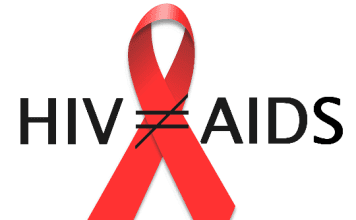Nigeria’s House of Representatives Committee on HIV/AIDS, Tuberculosis, and Malaria Control, chaired by Amobi Ogah, has highlighted the need for a significant annual investment of $8 billion to sustain the country’s efforts in combating HIV/AIDS.
This declaration was made at the launch of the 2024 Nigeria HIV Prevention Conference, themed “Accelerating HIV prevention to end AIDS Through Innovations and Community Engagement,” organized by the National Agency for the Control of AIDS in Abuja.
According to WAKADAILY, this landmark conference seeks to optimize groundbreaking approaches to HIV prevention, promote an inclusive and equitable human rights-based strategy, and mobilize increased domestic funding to ensure community-led and sustainable HIV programs.
With an estimated 1.8 million people living with HIV in Nigeria, of which approximately 1.63 million are receiving life-saving Antiretroviral Therapy, the country faces a critical challenge. Nigeria bears the unfortunate distinction of having the highest global burden of children born with HIV.
Ogah emphasized the urgent need to transform the narrative by scaling up local funding in the fight against HIV/AIDS.
He noted that the ambitious target of eliminating Mother-To-Child Transmission of HIV by 2030 remains a distant goal, as the national coverage of Prevention of Mother-To-Child Transmission stands at less than 50%, resulting in a staggering 22,000 cases of MTCT of HIV annually in Nigeria.
Therefore, he stressed the imperative need to reassess, reinvent, and reinvigorate HIV prevention strategies.
“For NACA to achieve her mandate, we must all ensure the increase of domestic funding, strengthening HIV interventions, mobilising community members for gender equality, social norms and gender equality in the optic of HIV prevention, treatment, and care service, particularly the PMTCT of HIV, support people living with and affected by HIV, the campaign against the stigmatisation and discrimination of persons living with HIV/AIDS, and ensure leadership action for these and key population communities among other interventions.
“NACA will also need to scale up its treatment centres, which is about 100. I think we should increase it to at least 300 by the end of 2024. To stem the tide and sustain the fight to end HIV through AIDS as a public health threat, funding is critical. An estimated $8 billion is needed annually to sustain the fight against HIV AIDS,” he pinpointed.
Ogah stressed the committee’s commitment to lobbying for more financial support for the field, implementing laws to advance comprehensive healthcare, assisting in research efforts, guaranteeing access to high-quality treatment, and fortifying vital alliances essential for the combined achievement.
“We will double up our oversight functions to ensure that funds budgeted for HIV/AIDS responses are used for the purpose for which they are meant.
“The National Assembly, as a representative of our communities and people will continue to provide strong leadership that will engender robust collaborations and partnerships with relevant stakeholders and to achieve the focus set goal that HIV AIDS is no longer a public health threat in Nigeria by 2030,” he pinpointed.
The Director General of NACA, Dr. Temitope Ilori, emphasized during her address that the conference theme highlights the vital role of community engagement in developing impactful prevention approaches and ensuring equal access to treatment for individuals affected by HIV/AIDS.
She noted that while significant progress has been made in combating the disease, there is still much work to be done to achieve the desired goals.
Ilori pinpointed. “We must redouble our efforts to prevent MTCT and strive for an AIDS-free generation by 2030, leveraging the advancements in health technology at our disposal.
“Prevention lies at the core of our public health interventions. Therefore, this conference serves as a platform to explore innovative approaches to empower communities, particularly those at higher risk, with the knowledge and tools to protect themselves from HIV infection.
“Stigma and discrimination remain significant barriers to achieving our goals by 2030. We must educate and sensitise people about the harmful effects of stigma and discrimination against individuals living with HIV/AIDS.
“Our strategies must be inclusive, person-centred, and sensitive to the needs of adolescents, young people, key populations, and people living with HIV/AIDS. We must also focus on community-based interventions while promoting local ownership and sustainability of our response efforts.”
According to the UNAIDS Country Director, Dr. Leo Zekeng, Nigeria has the necessary resources to implement a comprehensive prevention strategy, making it feasible to significantly reduce new HIV cases.
However, he emphasized that relying solely on prevention efforts will not be enough to achieve the desired outcome, highlighting the need for a multi-faceted approach to effectively combat the epidemic.
“Everyone must be involved. We need to find out at the state level how much is put towards prevention, we need to political commitment.
“Investment in condoms has reduced, and data remains a challenge. So, this is the time to invest in primary prevention, and chart a new course on reducing new infections in Nigeria.”
